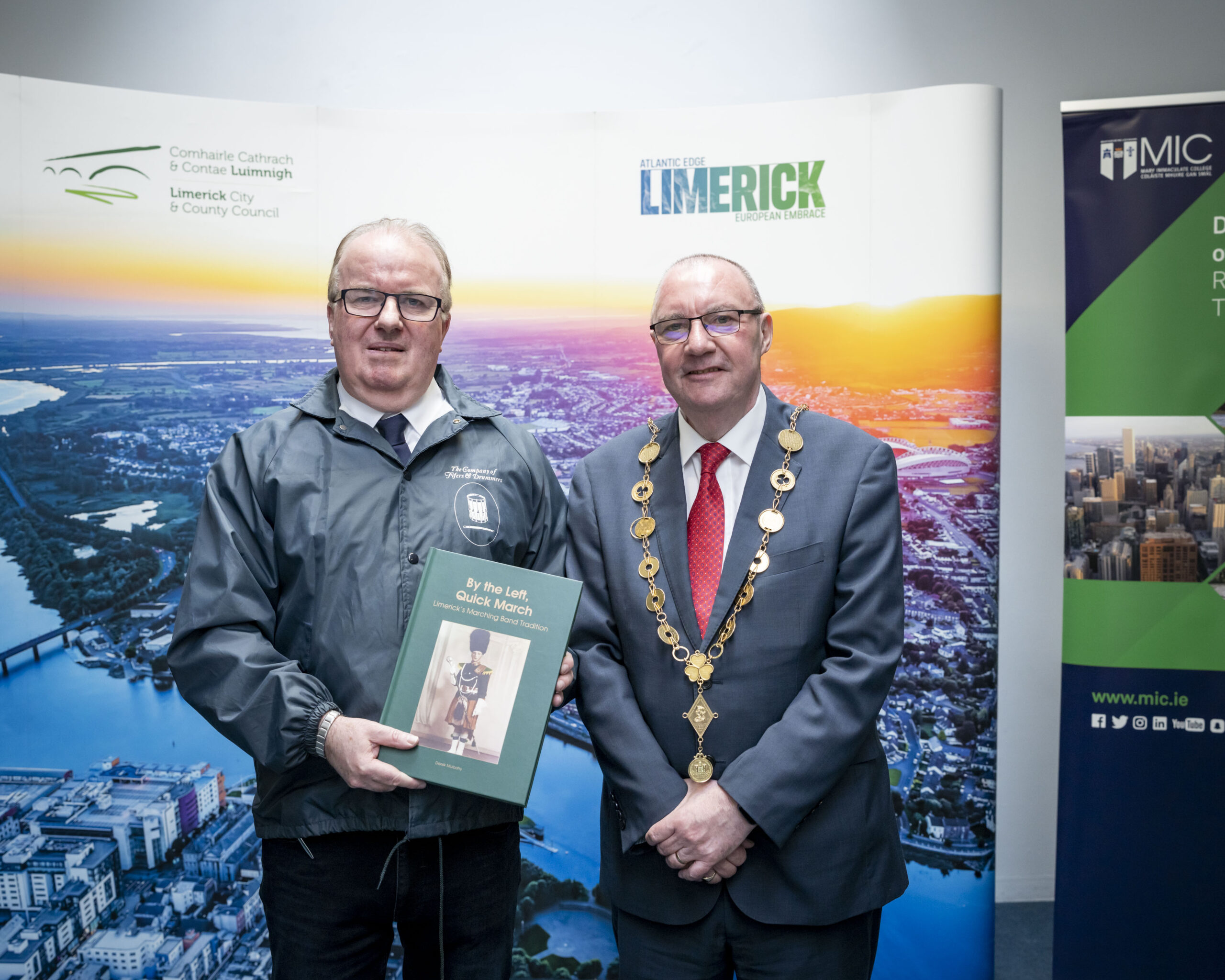

Culture
Limerick’s Marching Band Tradition documented in new book by MIC academic
Pictured at the Launch of a new book in the series on Limerick, Limerick Bands History and Tradition, a collaboration between Limerick City and County Council and Mary Immaculate College. ‘By the left quick march’ Limerick’s marching Band Tradition. Pic: Don Moloney
Story of Limerick’s long tradition of marching bands is told in a new book, ‘By The Left, Quick March – Limerick’s Marching Band Tradition’ from MIC academic
A new book from MIC academic Dr Derek Mulcahy tells the story of Limerick’s proud and long-standing culture of civilian marching bands.
This tradition began with the temperance movement in the 1830s and went on to play a major role in the social and musical life of the city.
Now, ‘By The Left, Quick March – Limerick’s Marching Band Tradition’ explores interviews, newspaper accounts, band records and photographs to tell – for the first time – the full story of these bands. The book is published by Limerick City and County Council in partnership with MIC.
In the book, Dr Mulcahy examines the bands’ heritage from both the temperance movement and the city’s military tradition, the political divisions among the bands, band competitions, music instrumentation and the importance of band halls. In a fascinating and detailed study of a tradition that Limerick holds dear, Dr Mulcahy captures the sense of civic pride that band members and Limerick people have in their bands.
The book was launched at a special reception at Limerick’s City Hall by Mayor of the City and County Limerick, Cllr Francis Foley on Sunday 5 March where Boherbuoy St John’s and Redemptorist Brass and Reed Bands, St Mary’s Fife and Drum Band and City of Limerick and CBS Pipe bands performed.
Speaking at the launch, Mayor Foley said: “This book is an extensive history of our bands with its rich history of photographs, newspaper articles, brochures and band records. Limerick is fortunate to still have brass and reed, fife and drum and pipe bands based in various parts of the city. While many bands in the city have disbanded over the last two centuries others have survived since the 1850s, they are now all recorded. I wish to thank the author and those that supported this research for all his work.”
The foreword to the book was written by the Head of the Department of Music at MIC, Dr Gareth Cox, who said: “I was delighted to be invited to provide a foreword for this excellent book on the history of marching bands in Limerick. Dr Derek Mulcahy tells an intriguing and detailed story based on numerous interviews, band archives, newspapers and private collections while also critically evaluating the political and social functions of the bands. It is a valuable and fascinating contribution to the history of musical life in the city.”
Dr Derek Mulcahy works with the Academic Learning Centre at Mary Immaculate College and holds a doctorate in History from MIC. Dr Mulcahy’s doctoral thesis discussed the Evolution of Limerick’s fife and drum tradition from the 1830s to 1930s. He is the author of the recently published The Leader of the Band (2021) which tells the story of Limerick man Patrick J. McNamara who emigrated to New York and set up the now-renowned McNamara’s Band with his brothers. Dr Mulcahy is also the bandmaster of St Mary’s Fife and Drum Band, founded in 1885.
By The Left, Quick March is available in O’Mahony’s Bookshop on Limerick’s O’Connell St and the Crescent Bookshop in Dooradoyle, Co. Limerick.














